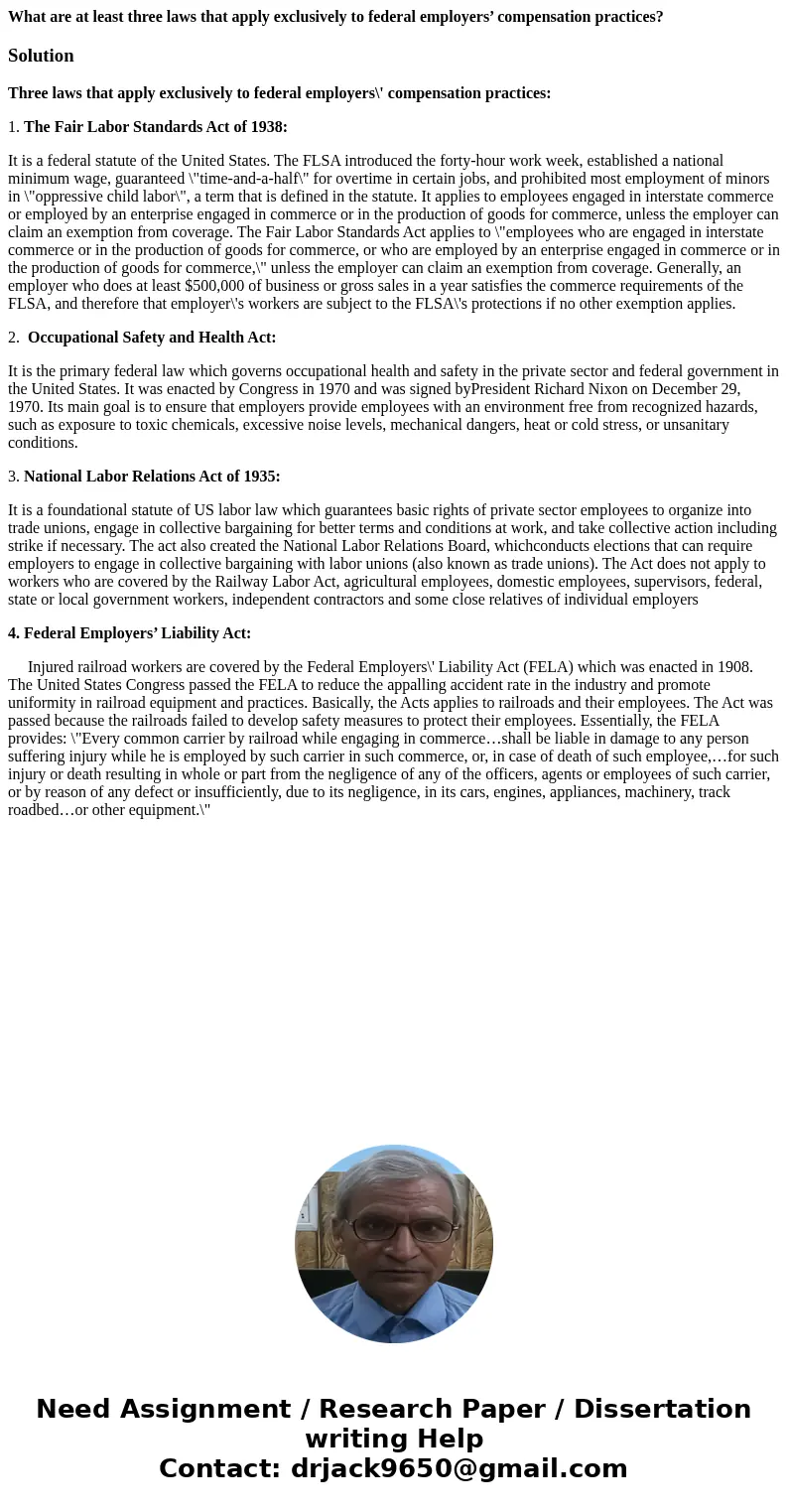What are at least three laws that apply exclusively to feder
What are at least three laws that apply exclusively to federal employers’ compensation practices?
Solution
Three laws that apply exclusively to federal employers\' compensation practices:
1. The Fair Labor Standards Act of 1938:
It is a federal statute of the United States. The FLSA introduced the forty-hour work week, established a national minimum wage, guaranteed \"time-and-a-half\" for overtime in certain jobs, and prohibited most employment of minors in \"oppressive child labor\", a term that is defined in the statute. It applies to employees engaged in interstate commerce or employed by an enterprise engaged in commerce or in the production of goods for commerce, unless the employer can claim an exemption from coverage. The Fair Labor Standards Act applies to \"employees who are engaged in interstate commerce or in the production of goods for commerce, or who are employed by an enterprise engaged in commerce or in the production of goods for commerce,\" unless the employer can claim an exemption from coverage. Generally, an employer who does at least $500,000 of business or gross sales in a year satisfies the commerce requirements of the FLSA, and therefore that employer\'s workers are subject to the FLSA\'s protections if no other exemption applies.
2. Occupational Safety and Health Act:
It is the primary federal law which governs occupational health and safety in the private sector and federal government in the United States. It was enacted by Congress in 1970 and was signed byPresident Richard Nixon on December 29, 1970. Its main goal is to ensure that employers provide employees with an environment free from recognized hazards, such as exposure to toxic chemicals, excessive noise levels, mechanical dangers, heat or cold stress, or unsanitary conditions.
3. National Labor Relations Act of 1935:
It is a foundational statute of US labor law which guarantees basic rights of private sector employees to organize into trade unions, engage in collective bargaining for better terms and conditions at work, and take collective action including strike if necessary. The act also created the National Labor Relations Board, whichconducts elections that can require employers to engage in collective bargaining with labor unions (also known as trade unions). The Act does not apply to workers who are covered by the Railway Labor Act, agricultural employees, domestic employees, supervisors, federal, state or local government workers, independent contractors and some close relatives of individual employers
4. Federal Employers’ Liability Act:
Injured railroad workers are covered by the Federal Employers\' Liability Act (FELA) which was enacted in 1908. The United States Congress passed the FELA to reduce the appalling accident rate in the industry and promote uniformity in railroad equipment and practices. Basically, the Acts applies to railroads and their employees. The Act was passed because the railroads failed to develop safety measures to protect their employees. Essentially, the FELA provides: \"Every common carrier by railroad while engaging in commerce…shall be liable in damage to any person suffering injury while he is employed by such carrier in such commerce, or, in case of death of such employee,…for such injury or death resulting in whole or part from the negligence of any of the officers, agents or employees of such carrier, or by reason of any defect or insufficiently, due to its negligence, in its cars, engines, appliances, machinery, track roadbed…or other equipment.\"

 Homework Sourse
Homework Sourse